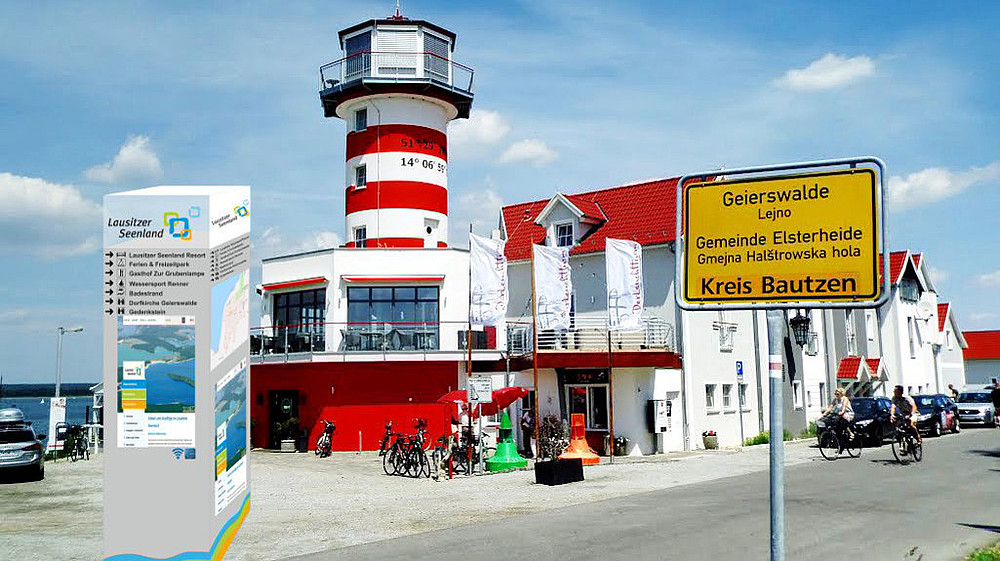HSZG students present a concept for the inner-local guidance system in the Lausitz Lake District.

On 23.01.2018, students on the International Tourism Management (M.A.) course presented the results of their inter-semester seminar. The aim was to develop a local route guidance system for non-motorized traffic in the Lausitz Lake District, using the village of Geierswalde as an example. The result is a concept for the installation of various information pillars that guide visitors to the Lausitz Lakeland within the villages to various sights, leisure facilities and the numerous service providers. The project was supervised by Sebastian Benad from the university, who particularly welcomes the implementation of digital information services in the orientation system. The concept was rated by the representatives of the Lausitz Lakeland as a very good basis for the further development of guest guidance within the destination, which will now be further developed in dialog with the stakeholders in the Lausitz Lakeland.
After the students were able to gain an impression of the conditions on site during an excursion to the Lausitz Lakeland, the results were compiled in an analysis of the current situation. This was flanked by a qualitative survey of guests and service providers in the target area. The next step was to define which facilities and destinations should be included in the guidance system. To this end, the students developed a list of criteria for evaluating the service providers. This analysis tool comprising 26 criteria enables the objective evaluation of individual goals and service providers with regard to their relevance for the guidance system. The development of the content to be communicated within the guidance system was thus successfully completed.
The students then worked in teams to develop the exact design of the orientation system. After testing various types of systems for their scope of information, suitability for the target group and accessibility, the choice fell on a guidance system in the form of information pillars, which would also do justice to the trend of the ever-increasing digitalization of the environment. In addition to classic information content such as destination information with pictograms and directions, the concept includes touchscreens with an interactive user interface. This means that access to all the information on offer in the Lausitz Lake District is also possible in several languages, thus expanding the target group approach within the destination. With the implementation of map services in the user interface, guests can select specific destinations on the digital map and call up exact route guidance. The range of information is completed by a Wi-Fi hotspot integrated into the information pillar, which guests can use to access the Internet freely. The implementation of "beacon technology" in the guidance system is forward-looking. This enables the transmission of push notifications, which can be used for tourism marketing in particular. If this technology were used, the Lausitz Lake District would be one of the drivers of innovation in tourism throughout Germany.
Following the completion of the design plans for the information elements, the locations for these still had to be defined. The findings from the on-site analysis formed the basis for this. A total of three large information pillars are planned for the Geierswalde area at the connection points to the supra-local signposting. The orientation system is completed by various individual signposts, which navigate visitors consistently to their destination.
In discussions with practitioners from the Lausitz Lake District, the students identified the development of a financing concept, the examination of funding opportunities for the realization of the concept and the concrete content planning as further steps. The practitioners and decision-makers from the Lausitz Lakeland expressed the desire to tackle these steps together as part of the cooperation.